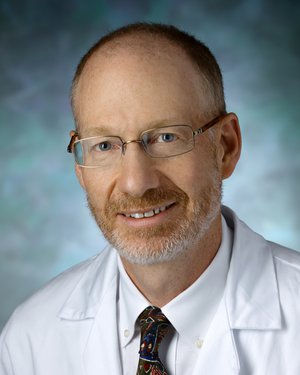
Adam Sapirstein, MD
Critical Care Medicine
Anesthesiology
Highlights
Johns Hopkins Affiliations:
- Johns Hopkins School of Medicine Faculty
About Adam Sapirstein
Professional Titles
- Director, Division of Adult Critical Care Medicine
Primary Academic Title
Associate Professor of Anesthesiology and Critical Care Medicine
Johns Hopkins Physician

Background
Dr. Adam Sapirstein is an associate professor of anesthesiology and critical care medicine and an assistant professor of surgery at the Johns Hopkins University School of Medicine. His area of clinical expertise is adult critical care. He is director of the Division of Adult Critical Care Medicine and is on faculty at the Armstrong Institute for Patient Safety and Quality.
Dr. Sapirstein received his medical degree from Pennsylvania State University College of Medicine and completed a residency in anesthesiology at Massachusetts General Hospital. He also performed a fellowship in anesthesiology and critical care medicine at Massachusetts General Hospital.
His research focuses on the roles of phospholipases A2 and their lipid metabolites in brain injury.
He is a member of the American Society of Anesthesiologists, the American Association for the Advancement of Science, the Society for Neuroscience and the Society for Critical Care Medicine.
Centers and Institutes
Additional Academic Titles
Associate Professor of Surgery, Associate Professor of Medicine
Research Interests
The roles of phospholipases A2 and their lipid metabolites in brain injury
Lab Website
Adam Sapirstein Lab - Lab Website
Research Summary
Dr. Sapirstein focuses his research on the role of phospholipases A2 and their lipid metabolites in brain injury. He and his group are evaluating the role of the cytosolic, Group V and Group X PLA2s in models of stroke and excitotoxicity and are investigating the function of PLA2s in cerebrovascular regulation. Both areas of research are conducted with in vivo and in vitro models.
Dr. Sapirstein and his colleagues believe that inhibitors of the PLA2 enzymes are likely to have several important clinical uses. They have discovered that cPLA2 is essential for the early electrophysiologic changes that occur in hippocampal CA1 neurons following exposure to N-methyl-d-aspartate, a finding that has profound implications regarding the possible uses of selective cPLA2 inhibitors following acute neurologic injury. Although they are working with models of stroke in mice, their findings may be broadly applicable to a variety of neurologic disorders. PLA2s also have been implicated in the pathogenesis of aspiration lung injury during general anesthesia and in reactive airway responses.
In the long term, Dr. Sapirstein hopes to establish the potential for clinical inhibition of PLA2 enzymes in the treatment of acute and chronic neurologic diseases and injuries. He also hopes to use in vivo imaging and lipid analysis to delineate specific roles for lipid species in modulating excitotoxicity and cerebrovascular responses.
Selected Publications
- Pronovost PJ, Bo-Linn GW, Sapirstein A. “From heroism to safe design: leveraging technology.” Anesthesiology. 2014 Mar;120(3):526-9. doi: 10.1097/ALN.0000000000000127.
- Cvach MM, Currie A, Sapirstein A, Doyle PA, Pronovost P. “Managing clinical alarms: Using data to drive change.” Nurs Manage. 2013 Nov;44(11 Safety Solutions):8-12. doi: 10.1097/01.NUMA.0000437594.58933.ce.
- Tropello SP, Ravitz AD, Romig M, Pronovost PJ, Sapirstein A. “Enhancing the quality of care in the intensive care unit: a systems engineering approach.” Crit Care Clin. 2013 Jan;29(1):113-24. doi: 10.1016/j.ccc.2012.10.009.
- Romig MC, Latif A, Gill RS, Pronovost PJ, Sapirstein A. “Perceived benefit of a telemedicine consultative service in a highly staffed intensive care unit.” J Crit Care. 2012 Aug;27(4):426.e9-16. doi: 10.1016/j.jcrc.2011.12.007. Epub 2012 Mar 14.
Honors
Fellow, Japanese Society for Promotion of Science, 1/1/02
Memberships
- American Association for the Advancement of Science
- American Society of Anesthesiologists
- Society for Critical Care Medicine
- Society for Neuroscience
Professional Activities
- Principal Faculty, Armstrong Institute for Patient Safety and Quality
Locations
- The Johns Hopkins Hospital
- 1800 Orleans Street, Baltimore, MD 21287
- phone: 410-955-5000
- fax: 410-955-5001
Expertise
Education
Massachusetts General Hospital
Fellowship, Anesthesiology and Critical Care Medicine, 1993Massachusetts General Hospital
Residency, Anesthesiology, 1992Pennsylvania State College of Medicine
Medical Education, MD, 1988Board Certifications
Clinical Informatics
American Board of Preventive Medicine, 2021Critical Care Medicine
American Board of Anesthesiology, 1995Anesthesiology
American Board of Anesthesiology, 1994Insurance
- Aetna
- CareFirst
- Cigna
- First Health
- Geisinger Health Plan
- HealthSmart/Accel
- Humana
- Johns Hopkins Health Plans
- MultiPlan
- Pennsylvania's Preferred Health Networks (PPHN)
- Point Comfort Underwriters
- Private Healthcare Systems (PHCS)
- UnitedHealthcare
- Veteran Affairs Community Care Network (Optum-VACCN)
